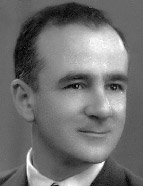

However, despite this vision that was completely in line with that of the Estado Novo, Alexandre Lobato should not be regarded only as a partisan historian that was a mere piece of the regime. In fact, he had a prominent role in the origin and development of Mozambican history. A large part of his work was dedicated to this former colony. Thus, he was one of those who— even with "a lack of working elements, because the Mozambican bibliography, besides being scarce, is not easy to find" ( História da Fundação de Lourenço Marques [History of the Foundation of Lourenço Marques], 1948, p. VII)— tried to write the history of this land in various periods but limited himself to the period after the Portuguese arrived. Afterwards, he always defended himself against the attacks he received from those who accused him of not being a historian, especially from journalist Rodrigo Júnior: "My political nationalism has nothing to do with history, the truth is I don't twist documents, I don't take away the flavour of truth or lies they contain, and I have a habit of letting the men of each era tell the facts with the ideas they live by" ( Aspectos de Moçambique [Aspects of Mozambique, 1953, p. 45). He took care to present his sources in all of his books, sometimes emphasising the difficulties he encountered and the gaps in certain archives. He kept in contact with other historians and exchanged letters with Vitorino Magalhães Godinho, who gave him some pointers in the third volume of A Expansão portuguesa em Moçambique de 1498 a 1530 [Portuguese Expansion in Mozambique from 1498 to 1530], published in 1960 (p. 389). We should also note that this last book is a book of economic history in the style of the historians from the Annales school, a methodology that the regime's historians did not use often.
This work is financed by national funds through FCT - Foundation for Science and Technology, I.P, in the scope of the projects UIDB/04311/2020 and UIDP/04311/2020.
